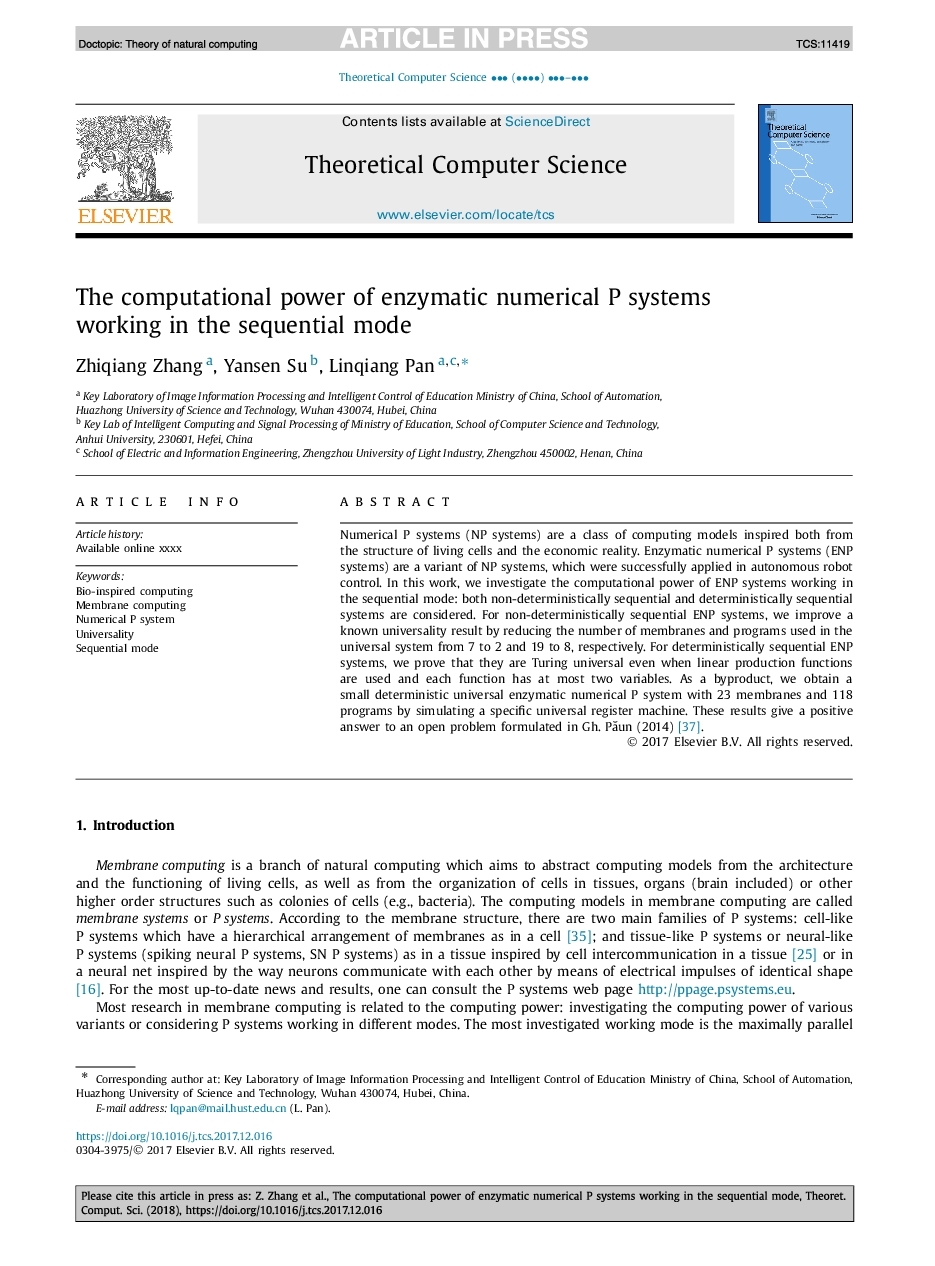| Article ID | Journal | Published Year | Pages | File Type |
|---|---|---|---|---|
| 6875530 | Theoretical Computer Science | 2018 | 10 Pages |
Abstract
Numerical P systems (NP systems) are a class of computing models inspired both from the structure of living cells and the economic reality. Enzymatic numerical P systems (ENP systems) are a variant of NP systems, which were successfully applied in autonomous robot control. In this work, we investigate the computational power of ENP systems working in the sequential mode: both non-deterministically sequential and deterministically sequential systems are considered. For non-deterministically sequential ENP systems, we improve a known universality result by reducing the number of membranes and programs used in the universal system from 7 to 2 and 19 to 8, respectively. For deterministically sequential ENP systems, we prove that they are Turing universal even when linear production functions are used and each function has at most two variables. As a byproduct, we obtain a small deterministic universal enzymatic numerical P system with 23 membranes and 118 programs by simulating a specific universal register machine. These results give a positive answer to an open problem formulated in Gh. PÄun (2014) [37].
Related Topics
Physical Sciences and Engineering
Computer Science
Computational Theory and Mathematics
Authors
Zhiqiang Zhang, Yansen Su, Linqiang Pan,
